- Home
- Michael White
A Bad Case of Sigbins
A Bad Case of Sigbins Read online
A Bad Case of Sigbins
(From the Casebook of Wallace Barrington,
Consulting Horticulturist)
Michael White
(Copyright © 2015)
This is a work of fiction. Names, characters, businesses, organizations, places, events and incidents either are the product of the author’s imagination or are used fictitiously. Any resemblance to actual persons, living, dead or not casting a shadow is entirely coincidental.
The author can be contacted via the links below.
Website: www.mikewhiteauthor.wordpress.com
Email: [email protected]
Twitter: @mikewhiteauthor
Amazon Author Page: http://www.amazon.co.uk/-/e/B006Y7JHCK
By The Same Author
Paul McCartney’s Coat and Other Stories
Tours of Note
The Fae Wynrie
Vallum Aelium
The Greatest Virus of Them All
Here Be Dragons
An Unremarkable Man
Liverpool
The Waiting Room
Anyone
A Challenging Game of Crumble
Into the Light
Book One: Lost In Translation
Into the Light
Book Two: The Road of the Sun
A Bad Case of Sigbins
Wallace Barrington’s distinction to fame came not from his vast (and some would say encyclopaedic) knowledge of the great and revered English garden and all of the pests, bugs and blights that would threaten it, but from his remedies for those same things, his reputation for curing of said problems was at worst much valued by the villagers of Nether Compton, and without doubt equally thought highly of throughout the entire county of Oxfordshire, if not in fact the entire country.
It was Lady Spiers-Faulkner who had first mentioned the greatest challenge of his horticultural consultative career when she had burst into his store one morning, mouth agape, all umbrella and Macintosh.
“Something’s at my ruddy pumpkins, Barrington!” she had declared, and cast a look at poor Wallace that gave him no doubt that he was expected to get to the bottom of the affair, and to get there as soon as he was able.
If not sooner.
“Slugs or snails are the most common threat to the pumpkin I usually find, Lady Spiers-Faulkner.” Said Wallace. “Ninety nine per cent of the cases I have come across it is usually one of those two.”
“Must be ruddy big slugs then.” She had sniffed testily, “Holes are hand sized and appear overnight. My groundsman has informed me that five of the bloody pumpkins are ruined so far. I fear it will spread if not arrested straight away. I shall expect you at three o’clock sharp, my man.” She finished and hurriedly left.
Wallace sighed under his breath. Being the premier consultant in the local vicinity of all things horticultural made him somewhat at the beck and call of any of the local landed gentry who usually expected him to drop the running of his shop and attend their premises with little or no warning. Usually with no payment for his time either, he concluded grumpily. Though this was not always the case, Lady Spiers-Faulkner having been particularly generous in the past.
Wallace’s shop was his fame but sadly not his fortune. He had been the proud proprietor of the local village gardening shop for nearly half a century now, ever since he was but a young man, and as his tenure of the shop drew longer so did his advice and experience increase. He made a good honest living from the place, but it was never going to be enough to retire on and so he just kept on going.
The shop itself was looking a little dated now, the wooden counters and shelves from another time. His till was non electric too, and he had very little room to manoeuvre on stock levels, though he usually relied on the basic staples any good gardening store would never run out of. (Slug pellets, tomato food, tools and so on.)
Which could of course be picked up in any major supermarket these days too. Yet still he had a good reliable trade and this was purely down to his knowledge of the plants and vegetables grown nearby, but also what to do when things started to go wrong.
Every summer someone would bring him in a leaf for example and ask if whatever was eating it was either a slug or a caterpillar. (Slug for inside outside of the leaf, caterpillars the other way around.) It was the little things he found to be of use and in these he excelled. Of course from time to time he would need to go and look, and it was for these visits that his reputation grew. There was the strange case of the Right Reverend Frinton-Smith’s African slugs for example, or the butterfly moth that very nearly ruined an entire orchard on the property of the Ferry Munstock Corogan’s. The latter had been a close call. After all, who would have suspected so much could be achieved with a small piece of ear wax, a stray piece of cotton and a match. Yet it had sufficed, and so Wallace’s reputation for consultative detective work in the field of horticulture slowly grew.
It could be argued that the increase in the regard of his horticultural expertise was directly linked to the appearance of his store, for whilst one grew the other diminished. Yet his customers actually seemed to like this, if not expect it. He very rarely put anything in his shop windows for example and his shelves inside the shop remained resolutely unstocked. Everything was below the counter, though it had been a long long time since he had seen the riddles. Where they were was as complete mystery to him.
Wallace took great pride in the appearance of his store, or more accurately the positioning of it, for he was somewhat remiss about maintaining the actual building itself, but the location of it was quite simply superb. The sign above the shop once read, “Barrington’s Horticultural Supplies”, though the paint was now peeled and fading, but he never remedied this for anyone who wanted to find his store already knew where it was anyway.
Where it was was at the east end of Nether Compton high street, though Wallace often found himself smiling at the thought of it being in any way a high street at all, for all that was there was a pub, a grocery store, a newsagents and a few other ragtag shops that sold the bare necessities that one may need at short notice. His shop however was slightly set back from the street itself, and in what Wallace thought of as the courtyard of the shop stood a sundial that he had placed there some twenty years before. On every sunny day he would more or less set his watch by it, and it was the delight of all of the local children who when passing would always spend some time looking at it as if it was a thing of wonder.
He had experimented with a weather rock, but he found it at best no more than a source of amusement, and the damned thing kept disappearing too, no doubt by out of towners who when passing late at night would be captivated by its charm and decide to take it home with them. On the fifth occasion of finding it missing Wallace decided to cut his losses and never replaced it. It had been a plain rock on which he had painted a list of weather conditions that could be expected to be found locally.
“Rock wet?” it read, “Rain.”
“Rock warm? Sunny.”
“Rock all white? Snow.”
“Can’t see rock? Fog.”
It had amused him at the time but it rapidly became a bit of a chore to constantly repaint the sign, never mind to find a suitable no doubt heavy rock, and his back would creak alarmingly as he carried it to the boot of his car and then back to the store, and so he decided to not bother the last time it disappeared and now relied on his trusty old sun dial instead. If nothing else that was far too heavy for any out of towners to place into the boot of their car, though no doubt there had been times when one or two had tried, but they were never successful.
He equally eschewed modern technology. His till was mechanical, and the door had an old brass bell on it that rang robustly when anyone entered the shop.
He did not possess or have any desire to own a computer of any sort, and a mobile telephone was something he had never taken possession of at all.
He did keep quite a collection of logs though. A keen gardener and long standing member of the local allotments, these ledgers contained notes and observations on the weather, signs of changes in temperature and so on. The local staple crops - potatoes (Earlies, second earlies, mid and main crops all), tomatoes and all of the English country garden vegetables he had long and detailed information on held in the books, all carefully written in longhand with a very sturdy and often filled mechanical fountain pen. [1]
The contents of these ledgers were much debated upon by all of the allotment owners, gardeners and other green fingered residents of Nether Compton, though he did not reveal his written observations to anyone.
“All they have to do is ask.” he would say and tap the side of his nose and wink. “All up here it is. Just because it’s written down doesn’t mean it’s more real. What’s said out loud is just as real too.”
“Haven’t you ever considered investing in a computer, Wallace?” had asked Lysander Ravenswood upon one of his frequent spring visits to the store. Wallace knew that Ravenswood was “something big in the city” which to him meant either a monument or a very old building, and Ravenswood was obviously neither of these so he was at quite a loss as to why he was held in such high regard by his fellow villagers. He certainly knew absolutely nothing about how to grow a tomato plant, for a start.
“See those ledgers?” he had asked Lysander pointing to the worn leather bound ledgers neatly lined up on one of the shelves behind the counter. Ravenswood had nodded eagerly. Like most of the local residents he was intensely curious about the wealth of knowledge that they contained. “They are my Google they are.” he had said, smiling brightly.
Ravenswood was more surprised that Wallace had heard of Google more than anything, for the shop itself and Wallace too seemed firmly entrenched in the nineteen fifties if anything. Yet he had seen Wallace’s point and so went happily on his way.
So Wallace was pretty much the person to ask locally for advice on growing vegetables in pretty much any kind of situation, the perfect cure for moss on the lawn, acidity of soil and so on. There had been, and he reckoned there always would be, a certain number of questions that would arise year after year, and although the answers were usually the same, it was always different people that he found himself giving them to. He rather suspected that people travelled far and wide to come and get his advice and that was fine as long as they picked up a little something from his shop when they did so.
It was very rare he found for him to come across something completely new or “out of turn” as he himself would put it, but this did not disturb him greatly. If he did discover something that was causing him difficulty then there was always the local library, or a visit into town to use the university resources that were available to him mostly due to him forging a very good relationship with Professor Cyril Geannon whose roses he saved from a very mildewy end a good few summers ago.
“All you have to do is ask, Wallace.” he would say, “Just present my card and you have full access to the university library.”
Wallace knew that this was a great privilege, and he treasured his rare visits to the library greatly, but he did not need to do so often, and if he did he was always pleased to occasionally note that some of the textbooks there seemed at best vague, and from time to time just quite simply incorrect. Still, he never said anything and was always particularly careful to let the good professor know that he had availed himself of the knowledge of the university library whilst at the same time enquiring about the condition of the professor’s roses.
A great deal of what Wallace was asked about on a daily basis was pure common sense. Yet he often found that the actual facts he was given on a particular case would not always be the entire story, or that some important piece of information had been omitted. Hardly ever deliberately he thought, but he did find himself sometimes having to become a breed of horticultural detective, a role that pleased him greatly for when he solved the problem his reputation simply grew even more.
Meyer Bishop’s pea run had been a case in point. That his crop was struggling was without doubt. When Wallace had turned up to have a look he tested the acidity of the soil, having noted that the wall, upon which he was attempting to grow them was south facing and that the canes and netting were sufficiently well strung and allowing the runners off the pea plants to grow sufficiently well. “Stretching themselves” Wallace always thought, and that was fine too. It was only over a cup of tea and a bit of head scratching that Bishop had let slip that the peas he was growing the crop from were probably a decade old.
“False economy, Meyer.” had chided Wallace, and it was sufficiently early in the year to rip the peas out and sew some fresh plants once the ground was freshly fertilised with some supplies that Wallace sold to him. The resulting crop - though no doubt late - was bountiful for September, and Wallace had yet another satisfied customer and a few more pounds in his till.
“Consulting horticulturist.” he said out loud to himself and smiled, for it was a good title and it made him smile. It was a title that had first been given to him by one of his customers one day. The title of “Consulting Horticulturist” had quite confused him at the time, even though he did quite like the ring of it, but he was particularly pleased when he made the link to Sherlock Holmes and for a while he did consider adding it to his business card, but he thought that perhaps it was a little bit pretentious and not wanting to succumb to pride he left it off his card in the end.
He continued with the mornings business (the myth about Magpies and their strange Spring disappearance,[2] the best way to confuse a slug[3] and what really was the best way to grow a cos lettuce[4]) and before long it was lunchtime.
Wallace always closed the store for lunch, not through force of habit but it was during this time that he would take his sandwiches and make his way across the fields to his allotment to see what the latest development there was. He found that every single day there was something new to see: the first pea flower followed shortly after by the pea pods, the amazing spurt of growth a sweetcorn plant follows when the fruit is being formed, the first early potato, sweet and firm from the ground, the tomatoes forming on the frame he had built just for them.
He would eat his sandwiches and sit in the peace and quiet, watching the other allotment owners busy about their business, bees buzzing lazily nearby and he was lost to the world. He never felt that working on his allotment was a chore or that it was just like being at work. He managed to keep the two quite separate, and of course during his hour (or maybe fifty minutes) he spent on the allotment he always found himself dispensing advice too, and he was happy to do so.
His only niggle these days was of course his advancing age. He was already at the wrong end of sixty and should have given up the shop years ago, but it was little trouble to him and having lost his wife several years earlier he found that it occupied his time which meant he had little time to stop and think, and it was an interest after all, more a pleasure than a requirement. Financially he found himself in an adequate position so the shop was hardly meant to support him, though usually it did. Even over particularly harsh winters his assistance was required, and as per usual he was glad to give it.
Yet he struggled with his back these days. Bending was quite painful, though he did manage it, and he suffered slightly with arthritis in his left hand. Yet he counted his blessings and everyone that knew him was blissfully unaware that on some days he felt as if he creaked a little more than others, and on damp days his left hand was weak and liable to drop things if he held onto them for too long.
He did not dwell on this though, and his allotment and his work kept him busy, even when he was interrupted as he was this morning by the arrival of Lady Spiers-Faulkner and her apparent problem with her pumpkins. Before lunch he had put the closed sign up as per usual but on
this day he had added a note to say that he was closed for the rest of the afternoon due to a consultation. He thought that sounded a little stuffy, but he did not want people to think he had just decided to take the afternoon off and was beginning to become unreliable, so the explanation on the card on the shop door was important he felt.
Lady Spiers-Faulkner lived in the village of Long Wanthrop which even by car was a good twenty minutes drive away. She had been a customer of his for many years now, though she did employ a groundsman who usually tended to the gardens and her ladyship's vegetable crops. Wallace knew that although the man was a grafter, he was equally not the sharpest pencil in the box and he could often be found holding up the counter in Wallace’s shop, wringing advice out of him for sometimes hours on end. Wallace was happy to give it, but he did wonder why the man had been unable to solve the problem with the pumpkins, or indeed why he had not mentioned it at all during his last visit, which was as far as Wallace could remember at the back end of last week at the latest.
Wanthrop Hall was a venerable old estate, and though it had seen better days it was still in good condition and in possession of a proud history that could be very easily traced all the way back to the Doomsday Book if one took the time to do so. Wallace drove across just after his lunch hour spent at the allotment, though today he had plenty of time as he was not due for his appointment until three o’clock and so he drove slowly, savouring the warmth and the sunshine of the day as he drove through the country roads to her estate. He made good time and considered popping into the Clock and Bell in the village for a quick half but thought best of it almost straight away. It would not be a very good idea to arrive for his appointment with the smell of beer on his breath!
Eventually he pulled of the road and drove through the large metal gates of the estate and made his way up the long drive. The grounds themselves were substantial, and it was a good three minutes drive before he caught the first sight of Wanthrop Hall through the trees, though he did eventually complete his approach and pull up on the thinly gravelled car park outside the house itself.

 Paul McCartney's Coat
Paul McCartney's Coat The Cat Is Back!
The Cat Is Back!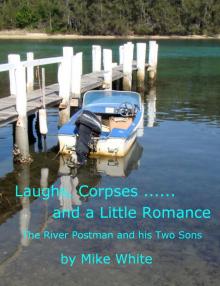 Laughs, Corpses... and a Little Romance
Laughs, Corpses... and a Little Romance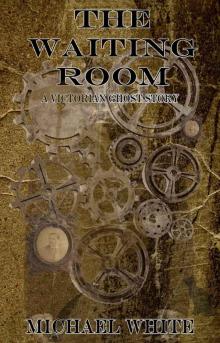 The Waiting Room
The Waiting Room Into the Light- Lost in Translation
Into the Light- Lost in Translation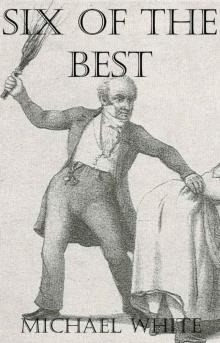 Six of the Best
Six of the Best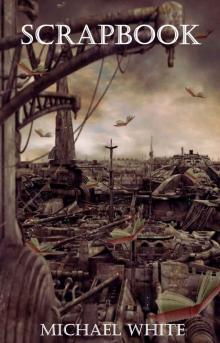 Scrapbook
Scrapbook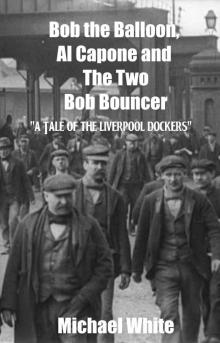 Bob the Balloon, Al Capone and the Two Bob Bouncer
Bob the Balloon, Al Capone and the Two Bob Bouncer The King of the Cogs
The King of the Cogs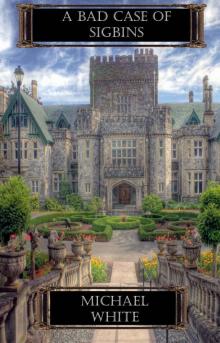 A Bad Case of Sigbins
A Bad Case of Sigbins To the Lighthouse
To the Lighthouse Overboard!
Overboard!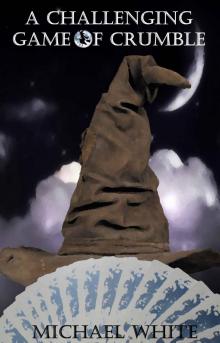 A Challenging Game of Crumble
A Challenging Game of Crumble Conversations With Isaac Newton
Conversations With Isaac Newton The Complete Adventures of Victoria Neaves & Romney
The Complete Adventures of Victoria Neaves & Romney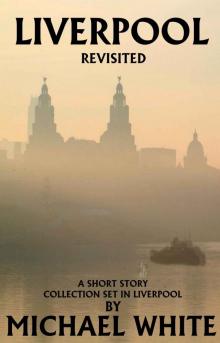 Liverpool Revisited
Liverpool Revisited Dad Comes to Visit
Dad Comes to Visit Lachmi Bai, Rani of Jhansi: The Jeanne D'Arc of India
Lachmi Bai, Rani of Jhansi: The Jeanne D'Arc of India Barf the Barbarian in Red Nail (The Chronicles of Barf the Barbarian Book 2)
Barf the Barbarian in Red Nail (The Chronicles of Barf the Barbarian Book 2)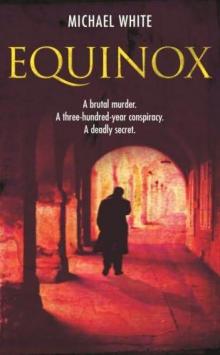 Equinox
Equinox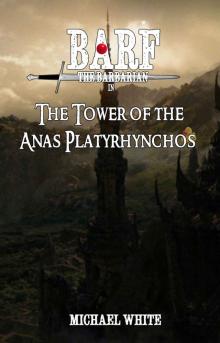 Barf the Barbarian in The Tower of the Anas Platyrhynchos (The Chronicles of Barf the Barbarian Book 1)
Barf the Barbarian in The Tower of the Anas Platyrhynchos (The Chronicles of Barf the Barbarian Book 1)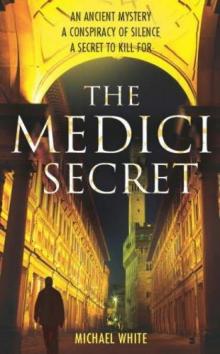 The Medici secret
The Medici secret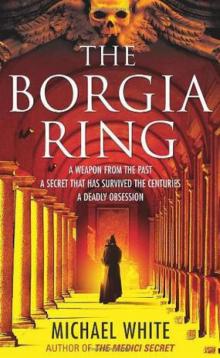 Jack Pendragon - 02 - Borgia Ring
Jack Pendragon - 02 - Borgia Ring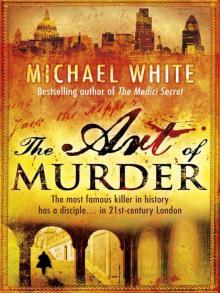 The Art of Murder jp-3
The Art of Murder jp-3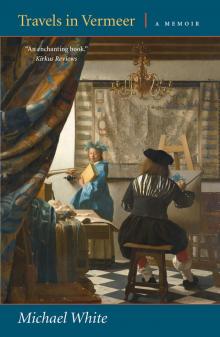 Travels in Vermeer
Travels in Vermeer